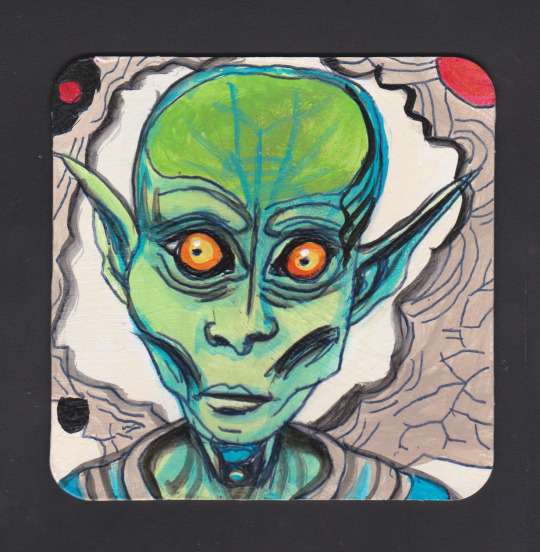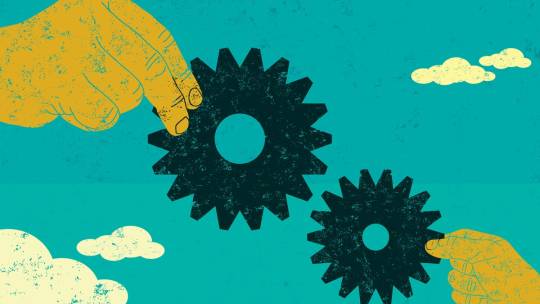#humanbehavior
Text
Manifesto of Humanity: Behavior in a Strange World
Summary:
In our world, there are peculiarities in human behavior, in their perception of each other, and the surrounding reality. Instead of seeing each person as an end in themselves, we often see them as a means to an end. It's time to stop measuring a person's worth by what they can offer you and start asking yourself: "How can I be of value to others?"
Main Principle:
"Do not bring unto others the discomfort you would not wish upon yourself."
Interpretation of Key Words:
Do not bring: This refers to actions or inactions that might result in harm or inconvenience to another person.
Others: People in your life – not only close ones and acquaintances but also those you bump into incidentally. It’s every person that, for one reason or another, appears in your field of vision.
Discomfort: Any negative feeling, emotion, or physical state caused by the actions or inactions of another.
To make this manifesto alive, consider the following steps:
Self-awareness: Start with yourself. Before acting, ask yourself, "Does my action or inaction bring discomfort to others?"
Be open to others: Strive to understand and respect the needs, wishes, and feelings of others. Don't hesitate to ask questions and clarify details.
Practice gratitude: Every day, find an opportunity to thank someone – for help, kind words, or just for being in your life.
Share the manifesto: Share these principles with friends, family, colleagues. Create a community of like-minded people striving to live in harmony with their inner world and surroundings.
The world starts with each of us. Let it be filled with understanding, kindness, and respect for every living being.
#ManifestoOfHumanity#HumanBehavior#RespectForAll#BeKind#Understanding#Gratitude#SelfAwareness#BeOfValue#HarmonyWithWorld#DoNoHarm#Inspirational#PersonalGrowth#Compassion
77 notes
·
View notes
Photo

The Weekend Entertainment is here Watch "Avaidh" at 8pm on @Sensationz Media & Arts.
.
Featuring Hiten Tejwani
.
Written & Directed By Harsh Anand
.
Don't Forget to Like , Comment , Share & Subscribe to YouTube channel.
Stay tuned for more updates.
.
.
.
.
.
.
.
.
.
#release#releaseday#new release#short fil#shortfilm#human trafficing and sex racket#humanbehavior#human trafficking#movies#short movie#movie review#movieedit#instagram#insta#hiten tejwani#trending
2 notes
·
View notes
Link
#adversity#asthma#autistic#awareness#bekind#calculating#Clarity#commonground#DotCombubbleburst#empathy#engineering#entrepreneurial#expectations#EyeContact#filters#GE#highneeds#humanbehavior#indoorairquality#introverted#Leadership#Management#Marketing#marks#mentallyexhausting#nowords#onthespectrum#perspective#RedSea#Resilience
1 note
·
View note
Text

No, sorry I can't hang out today.
I forgot how to mimic the behavior of a human.
#excuses#alien#humanbehavior#canthangout#humor#irony#awkward#artwork#kunst#flommist#beercoaster#lowbrowart#beermat#painting#outsiderart#artoftheday#flomm
0 notes
Text
Traits Through Your Preferred Drink Choices!
As a non-drinker navigating the world of socialising, I've found myself in a unique position to observe the fascinating interplay between individuals and their drink choices. In this exploration of the psychology behind preferred alcoholic beverages.
I bring a teetotaler's perspective to the table. While I may not partake in the libations, I've keenly observed the distinct personalities that emerge based on what people choose to sip on.
Oh who am I kidding? I can’t lie I have had a drink before. If I had to drink it would be a Baileys Irish Cream with ice. It’s a form of Whiskey in case you didn’t know. No lie though I do enjoy my tea and coffee to much. I digress let's get on with this blog..
Brandy - The Social Sage 🥃
If you're calmly sipping brandy, cognac, or Armagnac, you don't mind being noticed. You may not seek attention actively, but there's something captivating about you. You're the social sage, preferring to stay quietly seated in the corner, speaking only when necessary.
Whiskey - The Confident Storyteller 🥃
Confidence is your middle name if whiskey is your drink of choice. You enjoy entertaining others with stories from your life, valuing lasting happiness over temporary highs. Just be cautious not to cross the thin line between confidence and overconfidence, especially after a few personalized drinks.
Tequila - The Life of the Party 🍹
Living in the moment is your motto. Success or failure calls for a celebration, and nothing says party like a tray of tequila shots. You're at ease being the
center of attention on the dance floor, interpreting "You can dance" as a direct order from your drink.
Scotch - The Discerning Drinker 🥃
Distinguishing between scotch and whiskey, you're a slow drinker who appreciates life's finer aspects. Criticisms about arrogance for knowing the difference roll off you, as you prefer saying one wise word over talking all night.
Absinthe - The Naturally Creative 🍸
Always seeking your next muse, you keep to yourself and surround yourself with like-minded individuals. Your creativity knows no bounds, and you carry instruments, sketchbooks, or notebooks wherever you go, aiming to inspire without seeking fame.
Margarita - The Conversationalist 🍹
Margarita drinkers fall into two categories: frozen or on the rocks. If you enjoy frozen margaritas, love dancing, and embrace garish party decorations, you're a social butterfly. On-the-rocks drinkers start conversations with anyone and love making new friends outside their group.
Champagne - The Ravishing Life Lover 🍾
Your life is simply ravishing. Champagne is your everyday celebratory drink, reflecting your grand perspective on life. You have a magnificent taste, giving precise answers and expressing opinions eloquently.
Vodka - The Life of the Party 2.0 🍸
Vodka drinkers dive into the action, turning up the music and buying rounds of shots. It's about tracking progress more than savoring the flavor. Vodka cranberry enthusiasts simply want to see how much is left in the glass.
Wine - The Super Social 🍷
Wine drinkers spill secrets, whether their own or others'. With a glass of Pinot, their daring levels rise, making even the most personal questions fair game. They adore a good story and are super social.
Gin Martini - The Traditionalist 🍸
Classic gin martini drinkers are traditionalists who appreciate the art of holding their liquor. Known for their enigmatic and intelligent nature, they grab attention effortlessly at parties. According to some, they aren't particularly fond of those who order filthy martinis.
Always remember: psychology is my playground, and people are my puzzle. Investigating the intricacies of the human mind is my passion.
#PsychologyInvestigation#MindfulObservation#PersonalityTraits#PsychologyPlayground#CuriousMind#HumanBehavior#MindUnveiled#IntriguingInsights#MentalMaze#PuzzleOfPersonality#DiscoverTheMind#PsychologyJourney#BehavioralPatterns#CognitiveExploration#AnalyzingMinds#PsycheRevealed#MindfulInteractions#SoulfulPsychology#MindMysteries#InsightfulInquiries#today on tumblr#deep thinking#new blog
1 note
·
View note
Text
The Intricacies of Deceit: A Review of "The Folly of Fools" by Robert Trivers
The Intricacies of Deceit: A Review of "The Folly of Fools" by Robert Trivers
“The Folly of Fools: The Logic of Deceit and Self-Deception in Human Life” by Robert Trivers is a compelling exploration of the intricate dynamics of deceit and self-deception in human behavior. Trivers, a renowned evolutionary biologist, delves into the evolutionary roots of deception and its pervasive presence in various aspects of human life.
Key Takeaways:
Evolutionary Perspective:
Trivers…

View On WordPress
#CognitiveBiases#DeceitAndSelfDeception#EvolutionaryLogic#HumanBehavior#PracticalWisdom#RationalDecisionMaking#RelationshipInsights#SocialInteractions#SocietalImplications#TriversBookReview
0 notes
Text

In considering species development and transference of consciousness, one must examine the foundational attributes inherent to the original organism. For instance, humans can be viewed as evolved counterparts of primates, sharing foundational characteristics that influence behavior and capabilities, which we continue to adapt and refine.
To illustrate, imagine a scenario where we possess the ability to transfer our consciousness to an alien species, after traveling to distant planets. Suppose we select a native species, modify its DNA to suit our needs, and then instill our consciousness within this modified organism. As this species continues to procreate and evolve on this new planet, foundational characteristics of the original organism would persist.
Let's consider the example of modifying an octopus-like creature from another planet. Despite significant genetic alterations to accommodate our consciousness, inherent traits of the original octopus would remain and be passed on to subsequent generations. These inherent traits act as a foundational crust, upon which the modified attributes—representing the pie—are built.
As the species evolves over centuries, the modifications we introduced will interact with and be influenced by the foundational traits of the original organism. This foundational crust, being intrinsic to the species, will persist and cannot be altered post-consciousness transfer, thus continuously influencing the development and characteristics of the evolved species.
Reflecting on this concept, we can draw parallels with human behavior, where certain actions might not align with what we perceive as inherently “human,” particularly those actions deemed harmful or unethical. These seemingly incongruent behaviors can be traced back to our primal ancestors, revealing a connection to more instinctual, untamed characteristics.
These behaviors suggest a struggle between the primitive instincts inherited from our ancestral lineage and the refined consciousness that defines our humanity. In instances where consciousness is not fully awakened or is inexperienced—perhaps indicative of a younger soul—there might be a diminished capacity to control or moderate these primal instincts.
This interplay between foundational instincts and evolving consciousness is pivotal in shaping behavior, underscoring the necessity of acknowledging and understanding our intrinsic nature as we develop as a species. The scenario illustrates that, despite our capabilities to alter and adapt species, foundational attributes persistently influence the evolution and behavior of the resultant beings.
#SpeciesDevelopment#ConsciousnessTransference#EvolutionaryTraits#GeneticModification#FoundationalAttributes#HumanBehavior#PrimitiveInstincts#EthicalConsiderations#ConsciousnessDevelopment#IntrinsicNature#ExtraterrestrialLife#BehavioralEvolution#Adaptation#FutureSpeculation#PhilosophicalReflection
0 notes
Text

Post: In What World Is Sweet-and-Sour Sauce Worth Stabbing Someone? https://www.blaqsbi.com/5jlI
0 notes
Text
Ethics and moral responsibility

Ethics and moral responsibility are fundamental concepts in philosophy and human behavior. They both involve the evaluation of actions, decisions, and behaviors in terms of their rightness or wrongness, with an emphasis on the impact they have on individuals, society, and the world as a whole.
Ethics refers to the study of moral principles that govern human conduct and the reasoning behind determining what is morally right or wrong. It provides a framework for individuals to make decisions and choices in their personal and professional lives. Ethical principles often stem from various sources, including religious beliefs, cultural norms, philosophical theories, and social values.
Moral responsibility, on the other hand, refers to the idea that individuals are accountable for the consequences of their actions and are expected to uphold ethical standards. It implies that individuals have the ability to recognize the difference between right and wrong and should be held responsible for their choices.
Together, ethics and moral responsibility shape human behavior, influence decision-making processes, and guide individuals and societies toward promoting the greater good, fairness, and justice. They play a crucial role in various aspects of life, including business, politics, medicine, and interpersonal relationships, fostering a more harmonious and compassionate world.
#Ethics#MoralResponsibility#Philosophy#HumanBehavior#DecisionMaking#Accountability#RightAndWrong#Consequences#GreaterGood#Fairness#Justice#BusinessEthics#PersonalEthics#SocialValues#CulturalNorms#ReligiousBeliefs
0 notes
Text
0 notes
Text
The Science of Happiness: Exploring the Psychology of Positive Emotions
The pursuit of happiness is a universal human aspiration. For centuries, philosophers, scientists, and individuals have been seeking ways to understand how to achieve and maintain a sense of well-being and contentment. In recent years, the field of positive psychology has emerged, which focuses specifically on studying the science of happiness and the psychology of positive emotions.
Positive psychology is the scientific study of what makes life worth living. It examines the factors that contribute to human flourishing, and explores the ways in which individuals can cultivate positive emotions and experiences to enhance their overall sense of well-being. The field is based on the premise that happiness is not just a byproduct of success, but rather an essential component of it.
One of the key concepts in the science of happiness is the idea of positive emotions. Positive emotions are experiences that make us feel good, such as joy, contentment, gratitude, and love. Research has shown that experiencing positive emotions can have a range of benefits, both in the short and long term. For example, positive emotions can lead to increased creativity, better physical health, stronger relationships, and improved resilience in the face of adversity.
One of the most interesting findings in the field of positive psychology is the idea of the "happiness set point." This refers to the idea that each individual has a baseline level of happiness that is largely determined by genetics and personality traits. However, research has also shown that individuals can increase their level of happiness by intentionally cultivating positive emotions and engaging in activities that promote well-being.
One way to cultivate positive emotions is through the practice of gratitude. Gratitude involves intentionally focusing on the good things in one's life and expressing appreciation for them. Research has shown that practicing gratitude can lead to increased happiness, improved relationships, and even better physical health. Other strategies for promoting happiness include mindfulness practices, social connections, and engaging in activities that bring a sense of joy and purpose.
Overall, the science of happiness offers valuable insights into the nature of positive emotions and the ways in which individuals can cultivate well-being in their lives. By understanding the psychology of positive emotions, individuals can develop strategies for enhancing their sense of happiness and fulfillment, which can lead to a more fulfilling and satisfying life.
Read the full article
#Cosmology#Creativity#Humanbehavior#Humanpotential#Leadership#Learning#Metaphysics#Performance&productivity#Philosophy#Psychology#Spirituality#Survival
0 notes
Link
#anchoringbias#behavioraleconomics#behavioralinsights#biasesineconomics#choicearchitecture#cognitivebiases#decisionmaking#economicbehavior#economicdecisions#economicinsights#economicmodels#economicoutcomes#economicstrategies#framingeffect#humanbehavior#lossaversion#nudging#prospecttheory#psychologyandeconomics#rationality
0 notes
Link
A discussion of the interplay between racial opinions and ethics, emphasizing how they are inextricably linked and mutually influential.
0 notes
Video
Truth through body language and action build trust.
Connect with @JanetteGhedotte of @AccurateBodyLanguage to Discover, detect, and decode the words of deception and the BODY of TRUTH.
From Head to Toes, the BODY Always Shows the TRUTH..
#accuratebodylanguage#bodylanguage#behavioranalysis#bodylanguagetraining#detectdeception#decodebodylanguage#dontlietome#youcantlietome#facialexpression#facialexpressions#hotspot#humanbehavior#liars#liarsandcheaters#liedetector#microexpressions#nonverbalcommunication#truthseeker#truthseekers#spotthelies#gettothetruth#avoidcostlymistakes#bodylanguageexpert
0 notes
Photo

How to marry the formal review process with a true culture of feedback
I’m not a believer in the recent trend of abolishing formal performance reviews in favor of continuous feedback. Although I do believe continuous feedback—in both directions—is a hallmark of a strong employee-manager relationship, I don’t think it should replace a written document. Done right, a formal written review…Read more...
https://qz.com/how-to-marry-the-formal-review-process-with-a-true-cult-1850295325
#educationalpsychology#workplace#personaldevelopment#compensation#performancerating#jobevaluation#educationalassessment#humanbehavior#industrialandorganizationalpsychology#google#performanceappraisal#rubric#education#clairehughesjohnson#articles#Claire Hughes Johnson#Quartz
0 notes
Text
BA in Sociology – (Bachelor of Arts in Sociology)
Bachelor of Arts (BA) in Sociology is an undergraduate course that focuses on the study of human society, social behaviour, and relationships between individuals and groups. It involves the methodical and critical examination of social behaviour, social dynamics, social institutions, and social structures. Students will learn about the intricacies of social behaviour, social change, and social…

View On WordPress
#Sociology#SociologyDegree#SociologyMajor#SociologyStudent#SociologyGraduate#SocialScience#SocialIssues#SocialJustice#ResearchMethods#DataAnalysis#HumanBehavior#CulturalStudies#Globalization#GenderStudies#RaceStudies#ClassStudies#CommunityDevelopment#PublicPolicy#SocialChange#SocialMovements#SociologicalTheory#SociologyResearch#SociologyJobs#SociologyCareers
0 notes